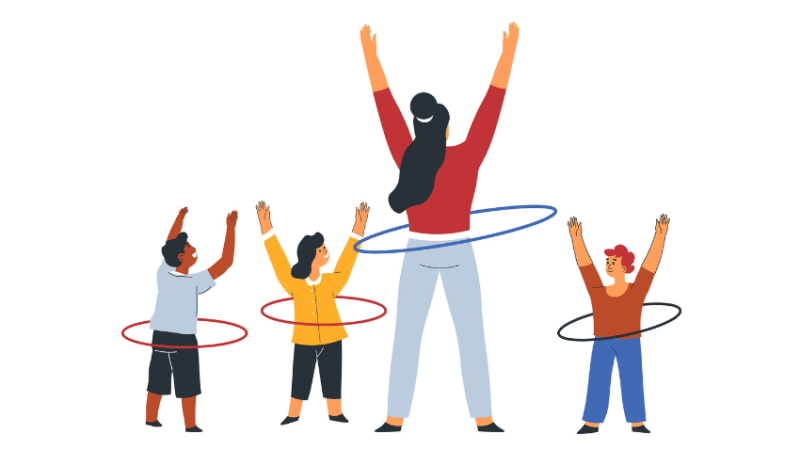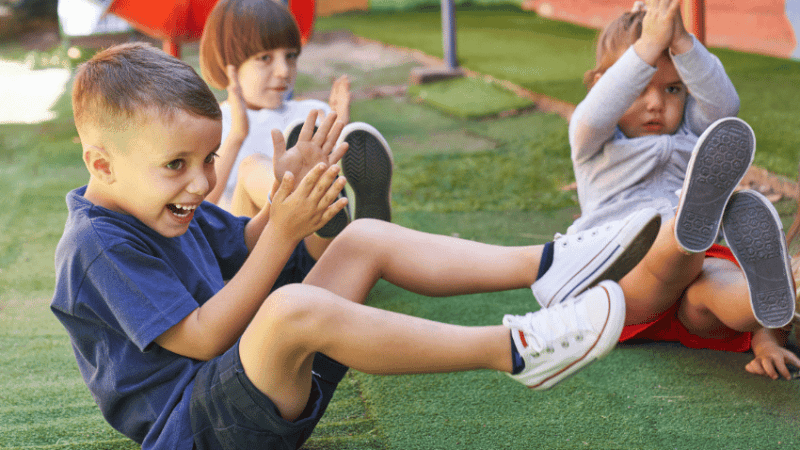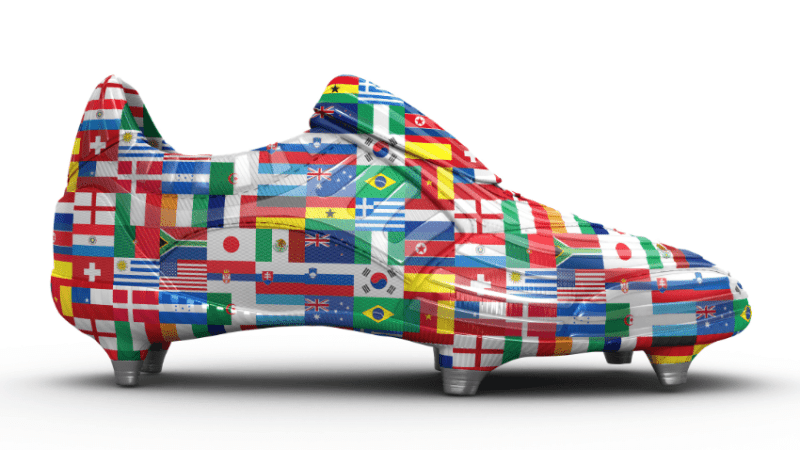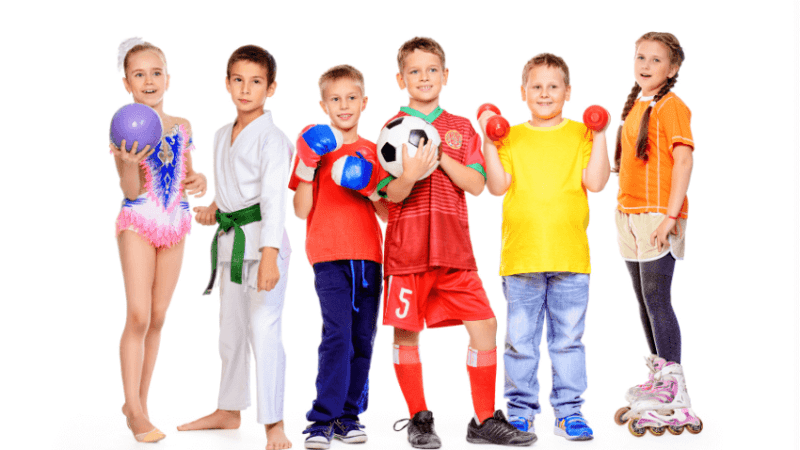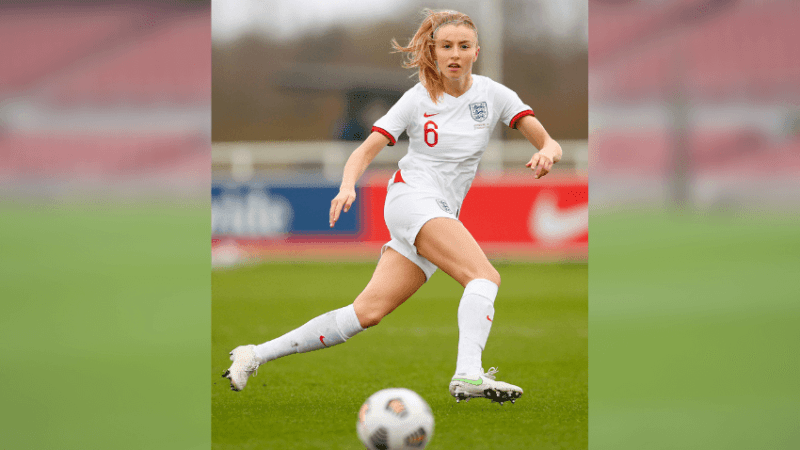Paris Olympics 2024 – Gold-medal teaching resources
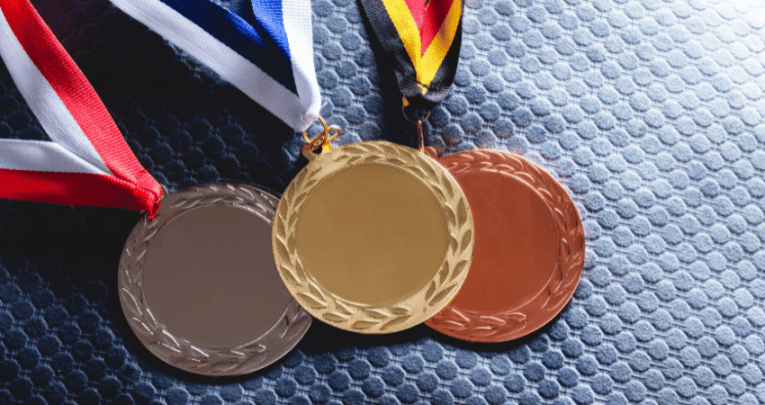
End the summer term by going for gold with these Olympic-themed activities for classroom and playground…

- by Teachwire
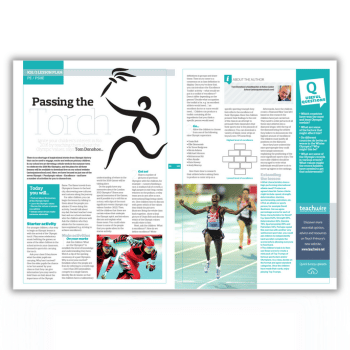
Bring the spirit of the Paris Olympics 2024 into your classroom with these engaging and adaptable teaching resources…
- When are the Paris 2024 Olympics?
- Olympic values lesson plan
- UKS2 reading comprehension
- Compare the 1948 and 2012 London Olympics
- Create Olympic pictograms in KS2 art
- Use Olympic values to discuss respect in RE
- Compose a new Olympic anthem in KS1 music
- Explore acts of heroism in sport
- Host a Magnet Olympics in Year 3 science
- Boost MFL skills with an Olympics-style race
- Reflect on Olympic values in your KS4 languages lesson
- Boost confidence with a friendly ‘Learning Olympics’
When are the Paris 2024 Olympics?
The Paris Olympics 2024 take place between Friday 26th July and Sunday 11th August.
Olympic values lesson plan
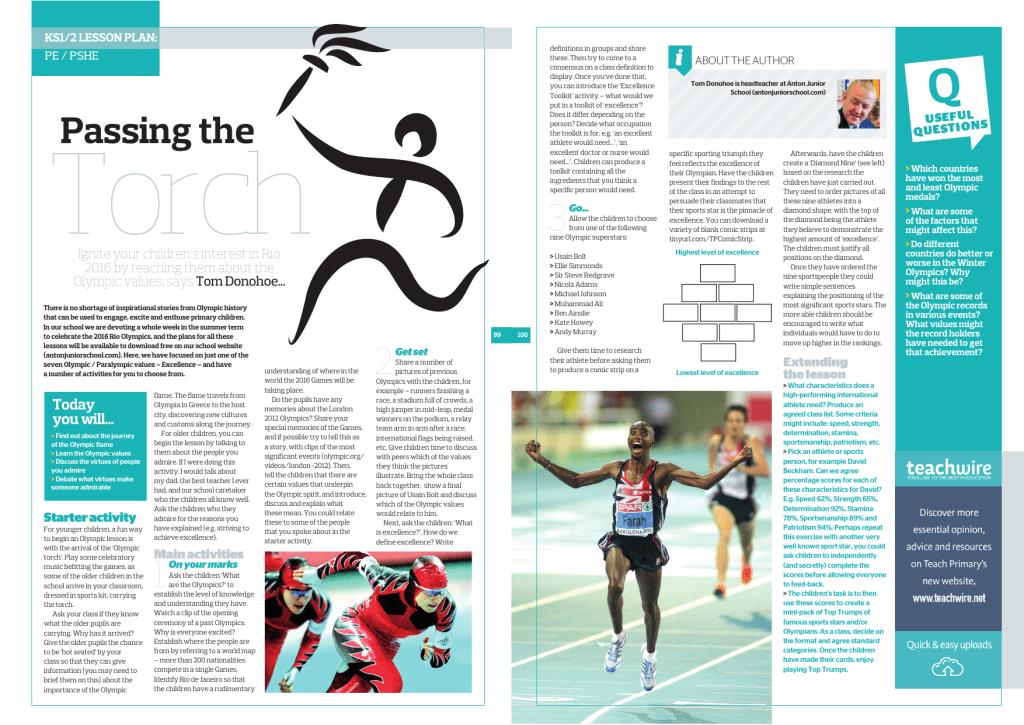
There’s no shortage of inspirational stories from Olympic history that can be used to engage, excite and enthuse primary children. This KS1/2 lesson plan incorporates PE and PSHE and focuses on the Olympic value of ‘excellence’.
UKS2 reading comprehension

This non-fiction comprehension pack from Plazoom guides UKS2 pupils through the history of the Olympic Games, from Ancient Greece to the modern Olympics which began in 1896. The pack contains a model text and comprehension questions.
Compare the 1948 and 2012 London Olympics
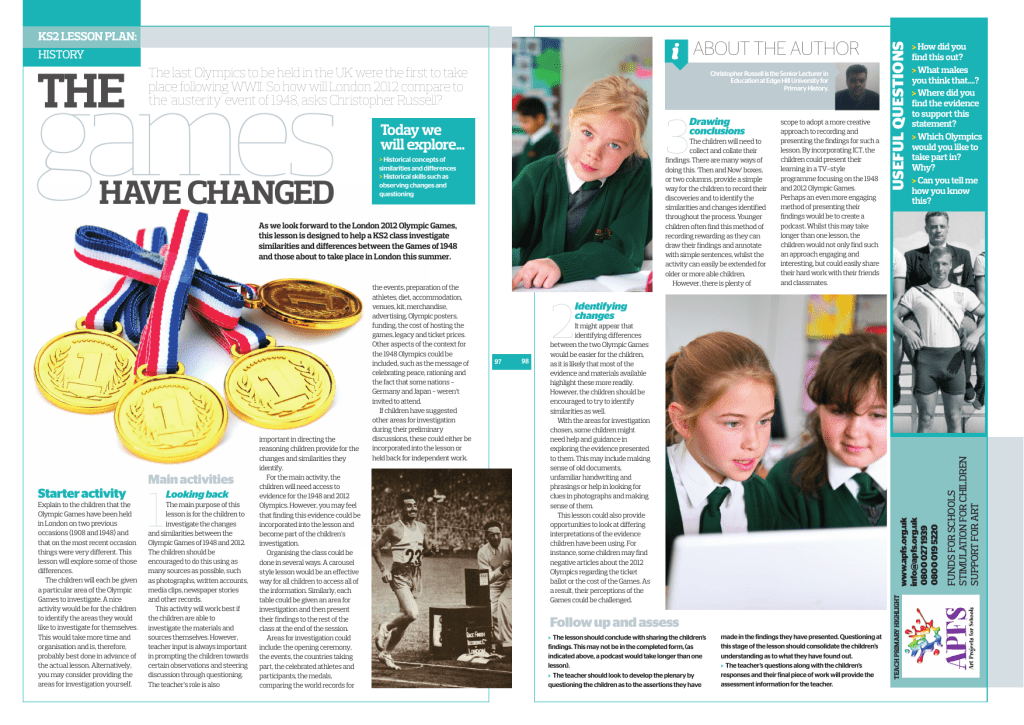
Help your KS2 class to investigate similarities and differences between the Games of 1948 and 2012 – both hosted in London. Pupils will learn to use important history skills such as observing changes and questioning.
Create Olympic pictograms in KS2 art
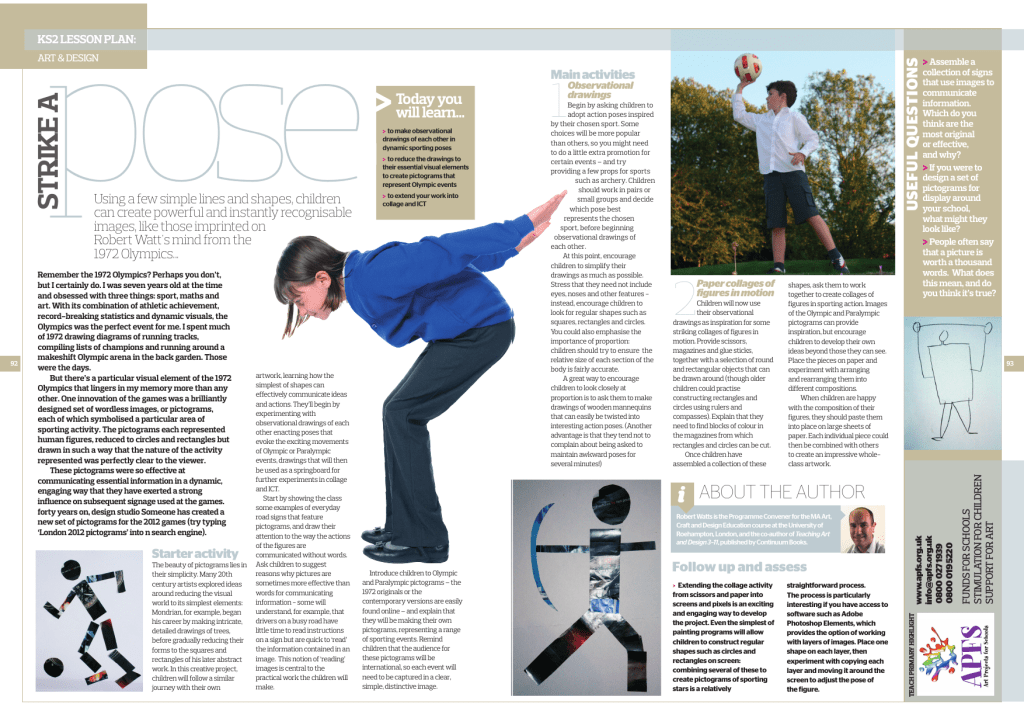
In this KS2 art lesson, perfect for trying in the lead-up to the Paris Olympics 2024, pupils will make observational drawings of each other in dynamic sporting poses. They’ll then reduce these drawings to their essential visual elements to create pictograms that represent Olympic events.
Use Olympic values to discuss respect in RE
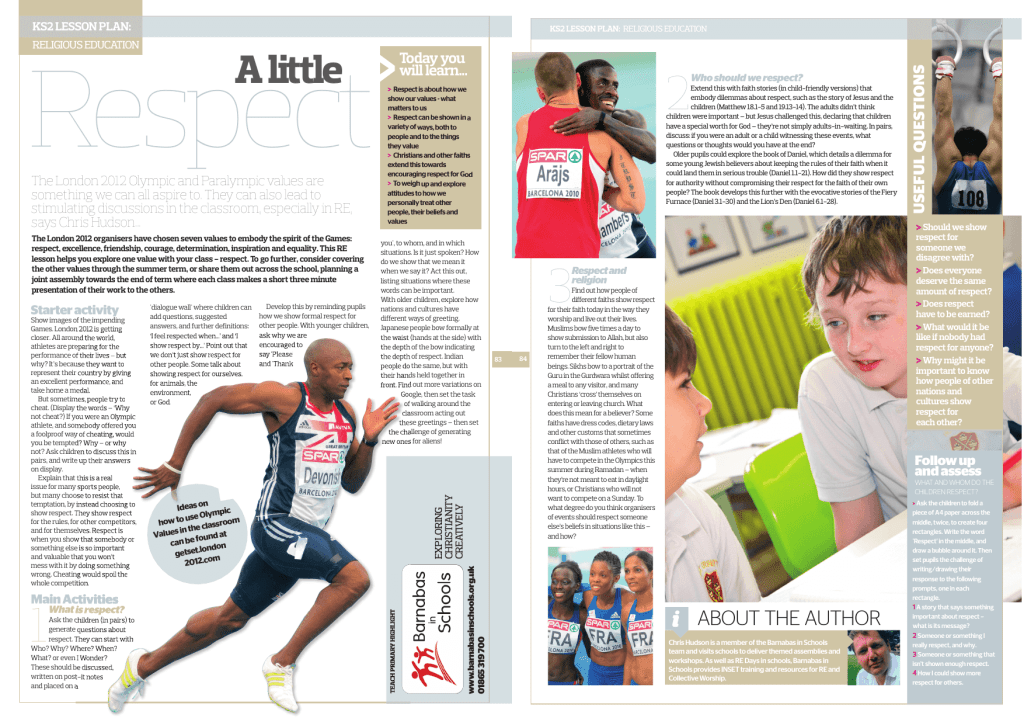
Explore the Olympic value of ‘respect’ and how we can show it in a variety of ways, both to people and to the things we value. In this KS2 RE lesson pupils will weigh up and explore attitudes to how they personally treat other people, their beliefs and values.
Compose a new Olympic anthem in KS1 music
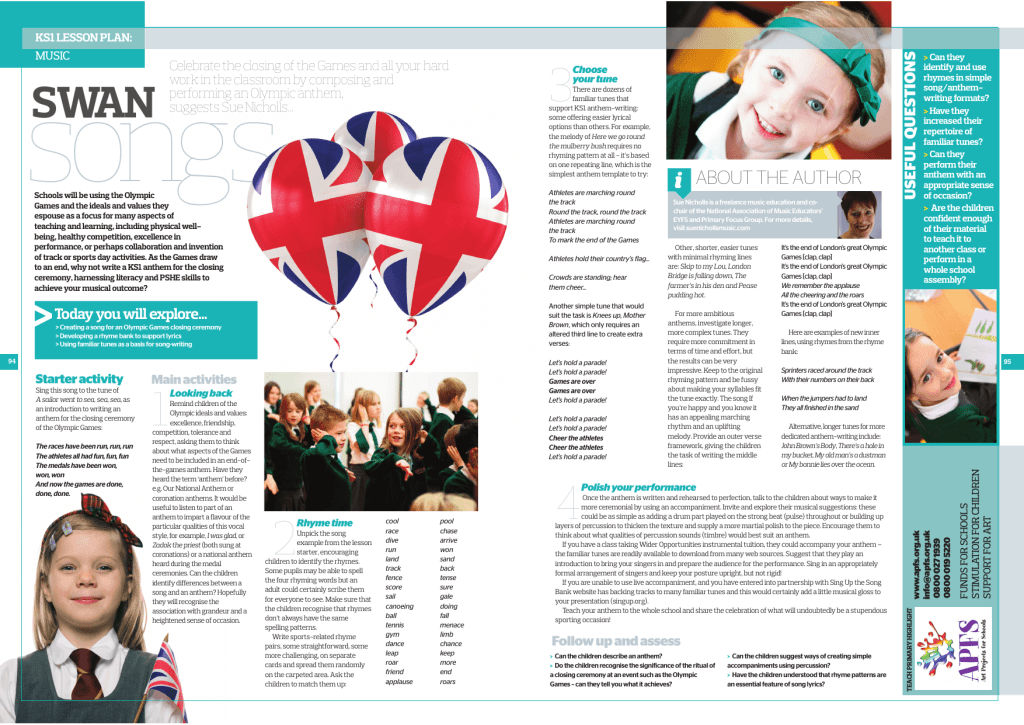
In this KS1 music lesson you’ll write an anthem for an Olympic closing ceremony, harnessing literacy and PSHE skills to
achieve your musical outcome.
Explore acts of heroism in sport
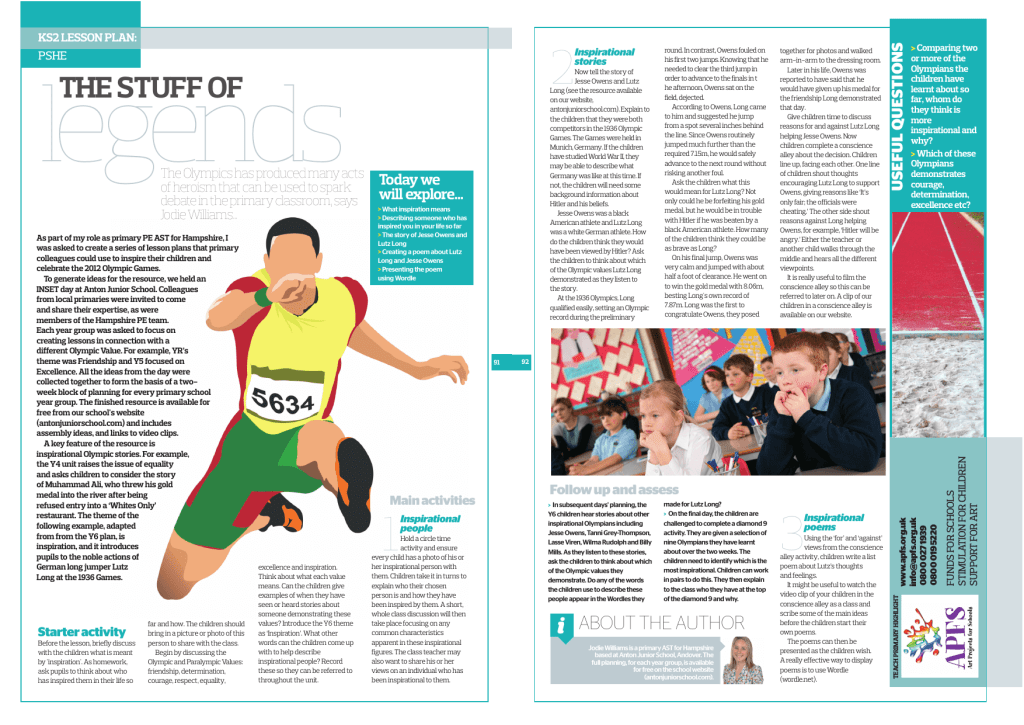
Use this KS2 PSHE lesson plan to introduce children to the noble actions of German long-jumper Lutz Long at the 1936 Olympic Games.
Host a Magnet Olympics in Year 3 science
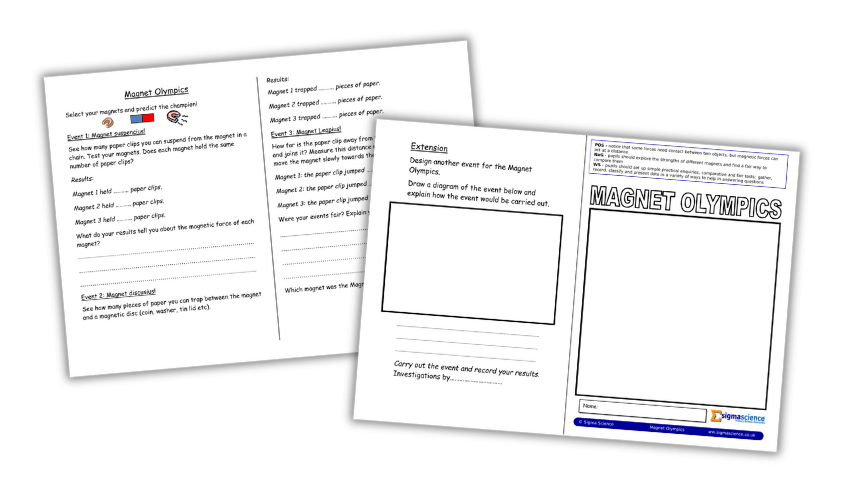
This series of Y3 science activities teaches pupils about magnets and magnetic forces. Try a series of games where students need to predict what will happen and pick a winning magnet.
Boost MFL skills with an Olympics-style race
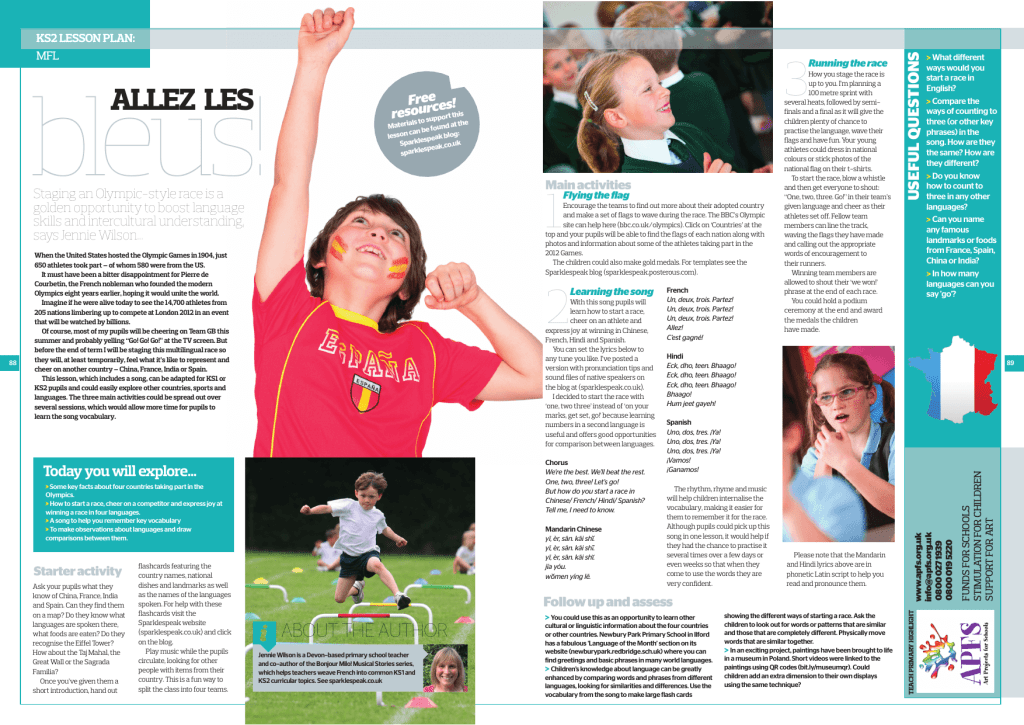
This KS2 languages lesson plan will help students feel what it’s like to represent and cheer on another country. Pick from China, France, India or Spain.
Reflect on Olympic values in your KS4 languages lesson
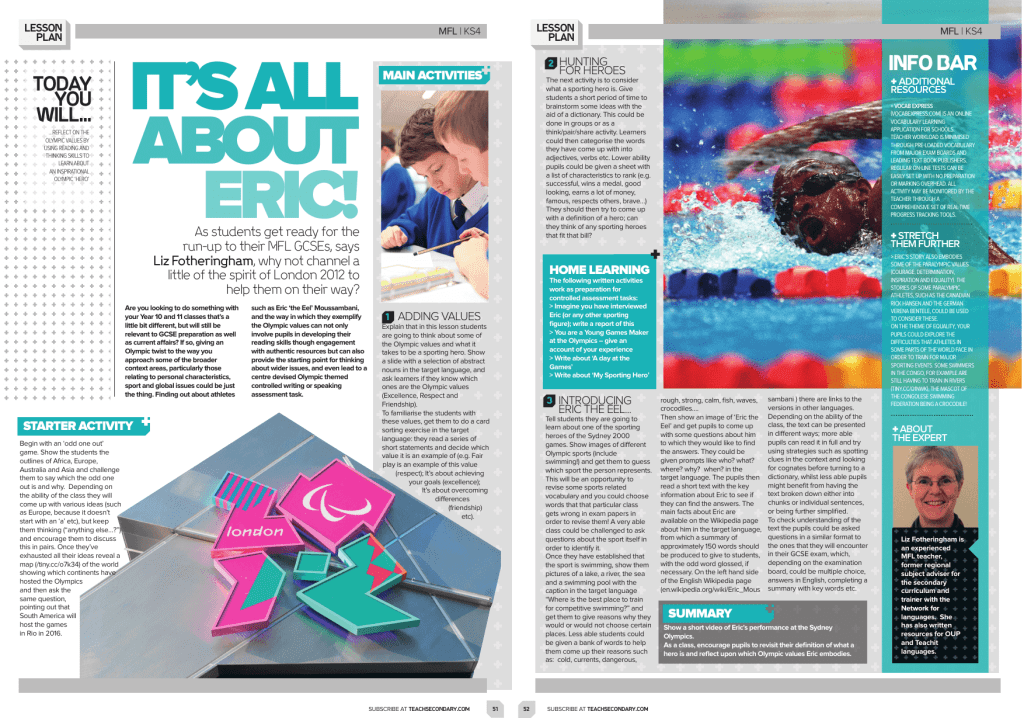
In this KS4 MFL lesson plan students will learn about an inspirational Olympic hero. They’ll use the target language to describe what makes a hero and work on sport-related terms and phrases.
Boost confidence with a friendly ‘Learning Olympics’
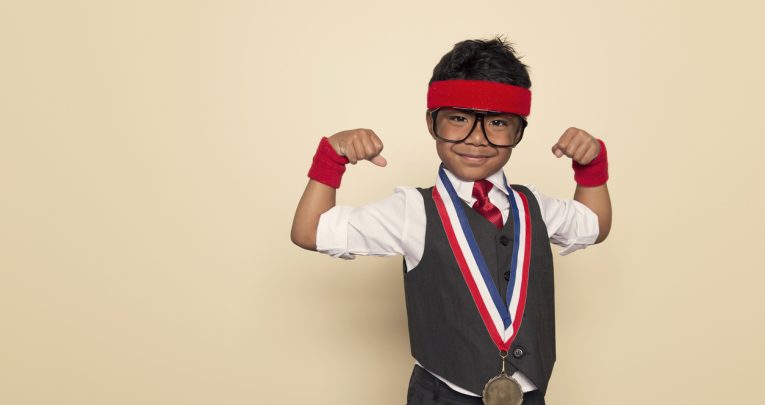
Organising a friendly competition where learning tasks take the place of sporting events can do much to boost your pupils’ confidence, says Nikky Smedley…
The idea for the ‘Learning Olympics’ project originally came about during the lead-up to the London 2012 games. However, any equivalent major international sporting occasion could act as inspiration and stimulus.
I was working as a creative consultant in a rural infant school at the time. The staff and I were acutely aware of the broad variance in ability and level of motivation we had with a particular Y2 cohort, along with quite a high incidence of SEND pupils.
We wanted the students to recognise their own learning; to provide opportunities for peers to see their fellow pupils as successful, and to challenge them in formulating their own ideas into a student-led celebration of achievement.
Our starting point was to suggest to them that we could hold our own Olympics – but rather than sport, our events would be based around learning. We were expecting to have to work hard to encourage them, but as soon as we planted the seed of the idea, the children seized on the notion with astounding levels of enthusiasm.
A major step
Immediately, many brilliant and creative ideas were forthcoming, driven by instinct. Our role quickly became that of facilitators, trying to provide as many opportunities for involvement and recording as many suggestions as we could.
The maturity with which the children applied themselves to the task in hand was astounding. Perhaps because they’d seen the real life sporting competition, and how much import the nation placed on it, they felt a real sense of responsibility and commitment to their own Olympic project.
The events that made it to the final list included some surprises:
- Storytelling
- Phonics
- Painting
- Numeracy
- Handwriting
- Spelling
- Tidying Up Nicely
There were only a handful of entrants for the storytelling event, who were willing to stand in front of the whole class (and a judging panel of six of their peers) and tell a tale of their own invention, lasting two to three minutes.
Once it got underway, however, we found that we had to extend the allotted timeslot because something interesting happened. Other children began asking if they could also compete in the storytelling contest.
These other children hadn’t prepared, but they’d seen something they wanted to be part of. They were willing to take the risk of making up a story on the spot, performing it and being judged on it.
What was extraordinary was that these were the children who would never normally put themselves up in front of the class, including some low achievers and SEND students.
In this environment, on the day itself, they suddenly wanted to join in. We couldn’t deny them, as it was such a major step for them – and they were brilliant.
Shared responsibility
A boy on the autistic spectrum invented the tidying-up event. He had very little intervention in either creating it, or in communicating what other children needed to do.
The ‘sporting arena’ was a shelving unit upon which lived baskets for keeping pencils, crayons, rulers, erasers, Sellotape and the other normal accoutrements of everyday classroom life.
We gave each competitor a basket containing a set selection of these items and instructed them to put them in their correct places – perfectly neatly and against the clock.
It was the most popular event of the day. Everyone could take part, and the swelling of pride in the chest of the inventor was a joy to behold. He managed to share the responsibility for timing each attempt on the stopwatch, and supervised the accurate recording of each turn. He also awarded the medal.
All the children involved took their obligations seriously, and perhaps surprisingly, there was virtually no squabbling. All the children took part in at least two events. We judged all of them in at least one event, and all equally enjoyed being part of the audience.
Impact on integration
We could point to a broad range of curriculum delivery, covering specifics as well as the wider – what you could label ‘softer’ – skill-set. But the greatest impact was on integration. The children looked at each other in a new way.
The project gave them the ability to see worth in one another, regardless of their differences, and helped every member of the class to see that they had an important role to fulfil; a role of value to the whole class community.
Here’s what the phase leader wrote:
“The range of ideas surprised us and made us realise how differently the students’ think compared to us, affecting their choice of events. They were proud of what they achieved, diplomatic when the judges chose their winners and noble in defeat.
“Most of all, peers recognised the effort put in by fellow students to have a go at challenges they wouldn’t normally have attempted.”
Try it yourself
- The whole class discusses their ideas and produces a ‘long list’ of potential events.
- In groups (or some cases individually, with support) these ideas ideas are then talked up into actual events, and the practicalities are considered. A shortlist is drawn up.
- Each group of children takes responsibility for a specific event (some ideas may fall by the wayside here, but that’s fine) and agrees on the criteria by which judgement will be made.
- Up to this point, things have been quite conceptual; now’s the time to get practical and start sourcing or making any props, score sheets and so forth that might be needed.
- The whole class needs to address the event in its entirety. How should people sign up to compete? Who will judge each event? What will be the order of proceedings on the day itself?
- Once everyone knows what’s required to make the day successful, set a date so that there’s a deadline to work to. Help the children draw up a schedule to ensure everything is completed in time.
- During the run-up and on the day itself, allow the children to take as much responsibility as possible for the running of the events. Your role should be that of a support team, rather than a dominant organiser.
Nikky Smedley is a writer, storyteller, educator, public speaker, passionate advocate for the child and heads up the How to Speak Child initiative.





